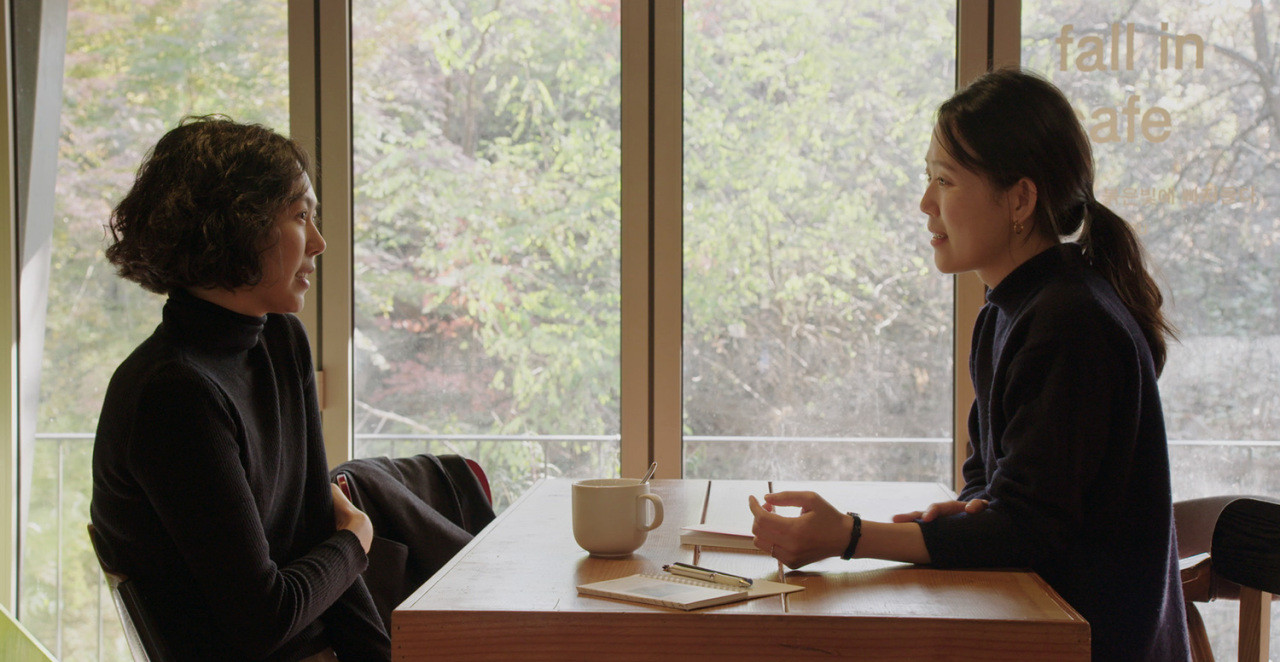Since the turn of the millennium, the Korean filmmaker Hong Sang-soo has been making a name for himself as a purveyor of small, self-contained dramas - no wild twists, no spectacular effects - about people bumping into and nudging up against one another on the streets of his native Seoul. These have become wildly popular on the festival circuit, as a) the majority run some way under 90 minutes, thereby counting as light relief from the circuit's four-hour documentaries about arable farming, and b) they frequently involve cultured souls sitting around aimlessly chatting and drinking, thereby holding up a flattering mirror to the after-hours festival experience. They haven't, however, established much of a foothold in the UK, certainly not when compared to other overseas territories: France, in particular, where Hong has been championed as an auteur on a par with, say, Kiyoshi Kurosawa (and seems but an especially breathless paragraph away from being framed as an Asian Éric Rohmer). Prior to this week's The Woman Who Ran, the only Hong title to receive full theatrical distribution here was 2013's Nobody's Daughter Haewon. Approached in isolation, a Hong film might look inconsequential, shruggingly uncommercial, a curious little indulgence. Yet see enough of them, devotees argue, and a genial worldview becomes apparent, as does a thematic and tonal consistency that makes each distinct title a potential point of entry: stick any of these DVDs on, and you'd know within fifteen minutes if Hong was a filmmaker for you. In this respect, he's less like the shapeshifting Kurosawa than the similarly revered Hirokazu Kore-eda, though I suspect Hong would find Kore-eda a bit too plotty for his own tastes.
It's not that The Woman Who Ran doesn't have a story; it's more that Hong is only interested in selected turns and situations within that story. It opens with a reunion between two old friends: bespectacled, divorced, solitary Young-soon (Seo Young-hua) and the younger-seeming Gam-hee (Hong muse Kim Min-hee), who arrives merrily loved-up. As they reminisce and natter, we could be sitting in on any other coffee morning; Hong is lulling us, to some degree. But note how he slowly adds elements, scene by scene. The two old pals are joined by Young-soon's amenable housemate Young-ji (Lee Eun-mi). The latter is briefly caught up in a semi-heated discussion with a male neighbour who's concerned that the girls have been feeding the housing block's stray cats. (An especially well-fed and expectant-looking feline is a welcome addition to the repertory at this point.) There's a lot of background, offscreen or under-the-surface drama going on here. Gam-hee is woken up in the middle of the night by a spooky figure on Young-soon's CCTV system; and in the morning, it turns out she has other friends to visit. She will be more forthcoming with some than she is with others: that's the real story. The film's sharper stretches of writing and playing draw us in, as we would be listening to an anecdote being told by a longtime companion. But it remains selective, and here's where frustration, too, enters the picture.
The biggest mystery concerns the identity of the runner referred to in the novelistic title. Hong tosses in an early red herring via some gossip relayed by Young-soon about a neighbour who abandoned her family - but that tale-within-a-tale draws into focus how committed the film's other women are to their current status. It may be the casting of the minxy Min-hee, but Gam-hee presents as far flightier than she's letting on. Whether that mystery is satisfactorily resolved over these 77 minutes is another matter; we're being offered slices of life, not a full meal. Having advised Hong newcomers to start anywhere they like, I also feel obliged to add that this filmmaker is very much an acquired taste; he works by accumulation. I still sometimes feel a need, watching this director's work, for a little extra narrative oomph, a drop more dramatic hot sauce - for some of that offscreen conflict to be wrestled on screen. Hong's cinema could only have gained the marginal toehold it has in our ruthlessly competitive film culture because it's so cheap to produce: much has been written about the artless zooms - a directorial signature, used to break up his talkier long takes - but The Woman Who Ran really does look as though it was shot in mere days. (It sounds a bit tinny, too, stuck with weird musical stings apparently sourced from tape recordings.) That lack of risk is front-and-centre here: this one's so self-contained that, like an old friends' coffee morning, it barely needs anybody else looking on. Still, there remains something admirable about Hong's capacity to make mountains - or at least molehills - out of his characters' small talk. If you were drawing up a list of contemporary cineastes whose work would meet the critic Manny Farber's definition of "termite art", he'd be right up there - though you'd add him with an air of amazement that a cinema this insistently minor-key, this barely there, hasn't yet been stamped out.
The Woman Who Ran will be available to stream via MUBI from Sunday.

No comments:
Post a Comment